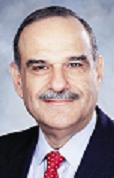Weather, Here and There ...

Cincinnati weather has been what the weather forecasters call “bitterly” cold, though it is beginning to moderate. Otherwise the Cincinnati experience is going quite well.
We saw the play “Wicked” last weekend. It was very good but not quite up the hype it received. Last week I also began two adult education courses, “In the News,” and “The Gift.” The former is about current events; the teacher functions more like a moderator, presenting an issue and then encouraging comments from the audience. The latter is about improving self-knowledge, and I can use more of that.
Much of my time last week was spent on preparation for a workshop for SCORE. The subject is Internet marketing and I am conducting the first of three sections. I modified the Power Point slides used in a previous presentation to more suit my style, and did a good job if I must say so myself.
Following is today’s New Orleans story, from AP via Yahoo:
NEW ORLEANS - A lively and sometimes scrappy debate on whether global warming is fueling bigger and nastier hurricanes like Katrina is adding an edge to a gathering of forecasters here.
The venue for the 88th annual meeting of the American Meteorological Society could not have been more conducive to the discussion: The Ernest N. Morial Convention Center is where thousands of people waited for days during the storm to be evacuated from a city drowning in water and misery.
Although weather experts generally agree that the planet is warming, they hardly express consensus on what that may mean for future hurricanes. Debate has simmered in hallway chats and panel discussions.
A study released Wednesday by government scientists was the latest point of contention.
The study by researchers at the National Oceanic and Atmospheric Administration's Miami Lab and the University of Miami postulated that global warming may actually decrease the number of hurricanes that strike the United States. Warming waters may increase vertical wind speed, or wind shear, cutting into a hurricane's strength.
The study focused on observations rather than computer models, which often form the backbone of global warming studies, and on the records of hurricanes over the past century, researchers said.







